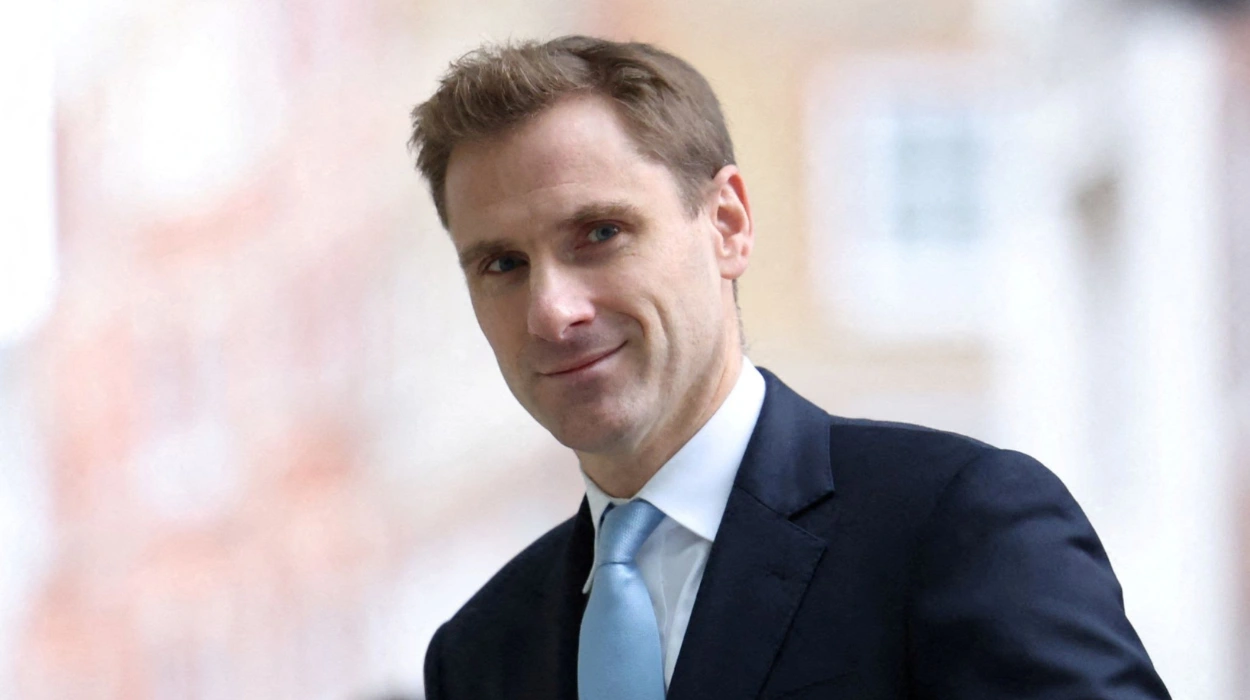Croydon (Parliament Politics Magazine) – A leaked recording reveals Croydon MP Chris Philp knew Brexit would hinder asylum policy, despite previous public claims by the Conservative government.
As reported by Inside Croydon, former Conservative government immigration minister and Croydon South MP Chris Philp has long understood that Brexit has resulted in Britain losing control of its borders.
According to a leaked video of Philp, the current shadow Home Secretary, admitting that Britain’s stance on immigration was weaker than it had been before leaving the European Union, Sky News reported this last night.
In his Brexit campaign, Boris Johnson, Philp, and the rest of the fanatical right claimed that Brexit would entail “taking back control.”
In fact, the reverse was always true, as Philp acknowledged in a private online meeting. The UK’s involvement in the Dublin Agreement, often known as Dublin 3, which regulates asylum claims throughout the EU, came to an end when Britain left the EU.
Philp was heard telling his group that the UK “can no longer rely on sending people back to the place where they first claimed asylum” because it was no longer a part of the EU.
People should have their asylum applications handled in the nation where they initially joined the EU, according to the Dublin Regulation. Because the Dublin Agreement’s terms are exclusive to EU full members, Britain cannot take part in it.
In the Tory briefing meeting recording that was leaked, Philp seemed to imply that the Johnson government was taken aback by the scope of the issue.
Since the Conservatives lost the general election last July, Philp has assumed the role of an online troll, posting nearly daily tirades on paedophiles, Rwanda, and small boats—often in a single tweet. He may be under-occupied now that he is no longer in government.
He and the Tories recognized that their Brexit approach would make dealing with immigration more difficult rather than easier, as evidenced by what he was heard stating at an internal Conservative Zoom meeting last month, ahead of the local elections.
“When we did check it out… [we] found that about half the people crossing the Channel had claimed asylum previously elsewhere in Europe,” Philp said in his meeting.
It has now come to light that the reason why none of these immigrants may be legally repatriated to France or other EU countries is because Philp and his Tory administration supported Brexit.
In 2020, Philp said:
“The Dublin regulations do have a number of constraints in them, which makes returning people who should be returned a little bit harder than we would like. Of course, come January 1 [2021], we’ll be outside of those Dublin regulations and the United Kingdom can take a fresh approach.”
Britain must now negotiate bilateral returns agreements with other countries after Brexit and the termination of the UK’s participation in the Dublin Agreement.
Last night, Sky News reported,
“In the summer of 2020, Mr Johnson’s spokesman criticised the ‘inflexible and rigid’ Dublin regulations, suggesting the exit from this agreement would be a welcome post-Brexit freedom.
Mr Philp’s comments suggest a different view in private.”
Just before the local elections at the end of April, the most recent revelation was made during a Tory Zoom briefing. Philp was questioned about why nations like France still permitted immigration to Britain.
“The migrants should claim asylum in the first safe place and that under European Union regulations, which is called the Dublin 3 regulation, the first country where they are [seeking] asylum is the one that should process their application,”
Philp said.
He added that now, because they are out of the European Union now, they are out of the Dublin 3 regulations, and so they can’t any longer rely on sending people back to the place where they first claimed asylum. When they did check it out, just before they exited the EU transitional arrangements on December 31, 2020, they did run some checks and found that about half the people crossing the channel had claimed asylum previously elsewhere in Europe.
In Germany, France, Italy, Spain, somewhere like that, and therefore could have been returned. But now they are out of Dublin, they can’t do that, and that’s why they need to have somewhere like Rwanda that they can send these people to as a deterrent.
In addition to its enormous financial burden on British taxpayers, Philp’s enthusiasm for the Rwanda plan has been slightly dampened by the European Court of Human Rights’ decision to ban it.
The plan was abandoned by Keir Starmer when he took office last year, and not a single migrant—illegal or not—was ever sent to Rwanda.
According to Sky News, government ministers have revealed that the Labour administration is in talks with the French about a repatriation arrangement that would exchange asylum seekers between the two nations.
Meanwhile, Kemi BadEnoch, the newish head of the Conservatives, says they have measures to address immigration. As they claimed to have done when they were in government.
How has Brexit impacted the UK’s ability to handle asylum claims in Croydon?
Due to its withdrawal from important EU asylum frameworks, including the Dublin III Regulation and the Eurodac fingerprint database, Brexit has had a substantial impact on the UK’s capacity to manage asylum requests.
In order to control migratory flows and decrease secondary movements, the UK was able to return asylum applicants to the first EU nation under the Dublin system before Brexit.
The UK no longer has access to these procedures since exiting the EU, which makes it more difficult to repatriate asylum seekers to other European nations and makes it more difficult to enforce the rule that asylum claims should be made in the first safe nation reached.
Due to this loss, there is now no legally enforceable structure in place to permit transfers between the UK and EU member states, leaving a legal and operational void.


